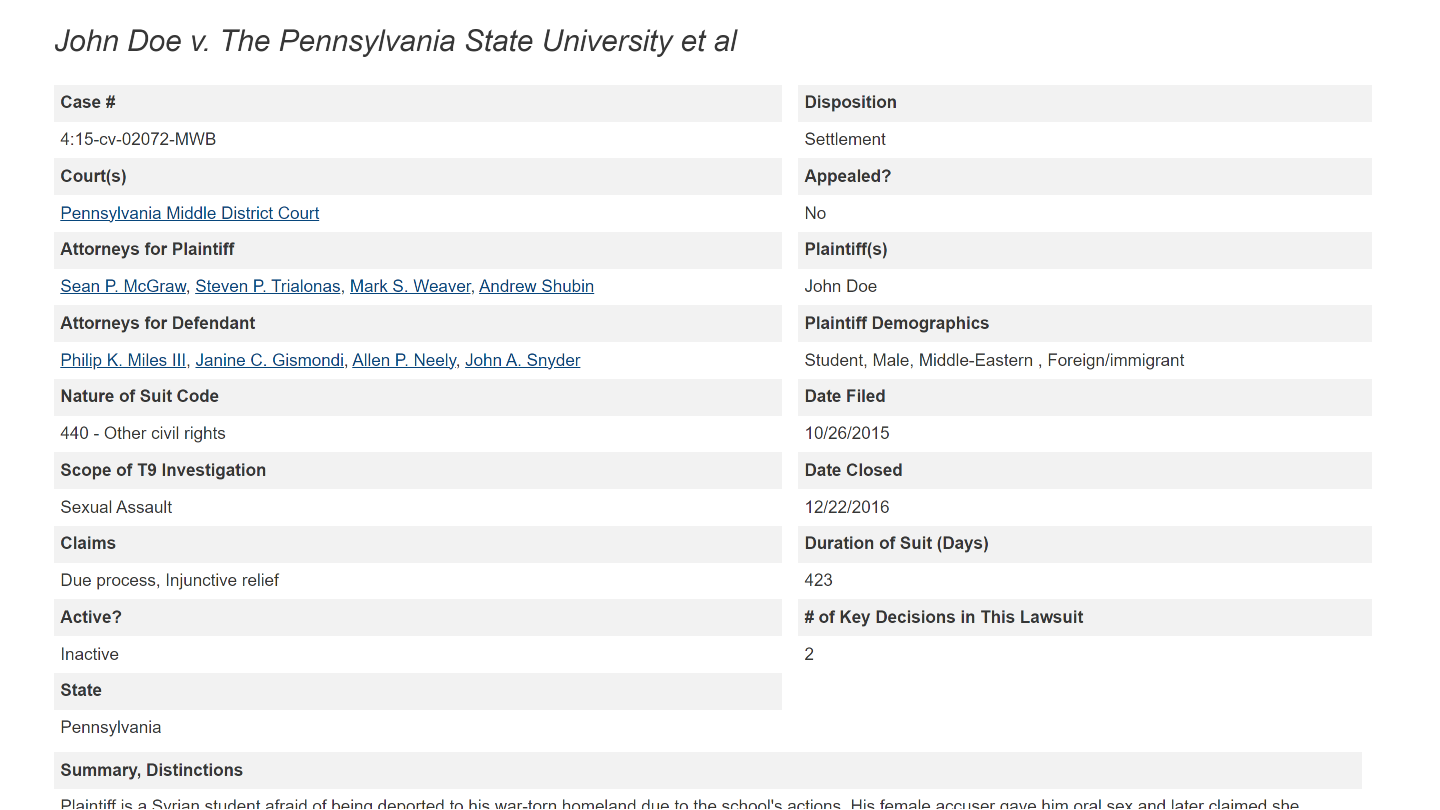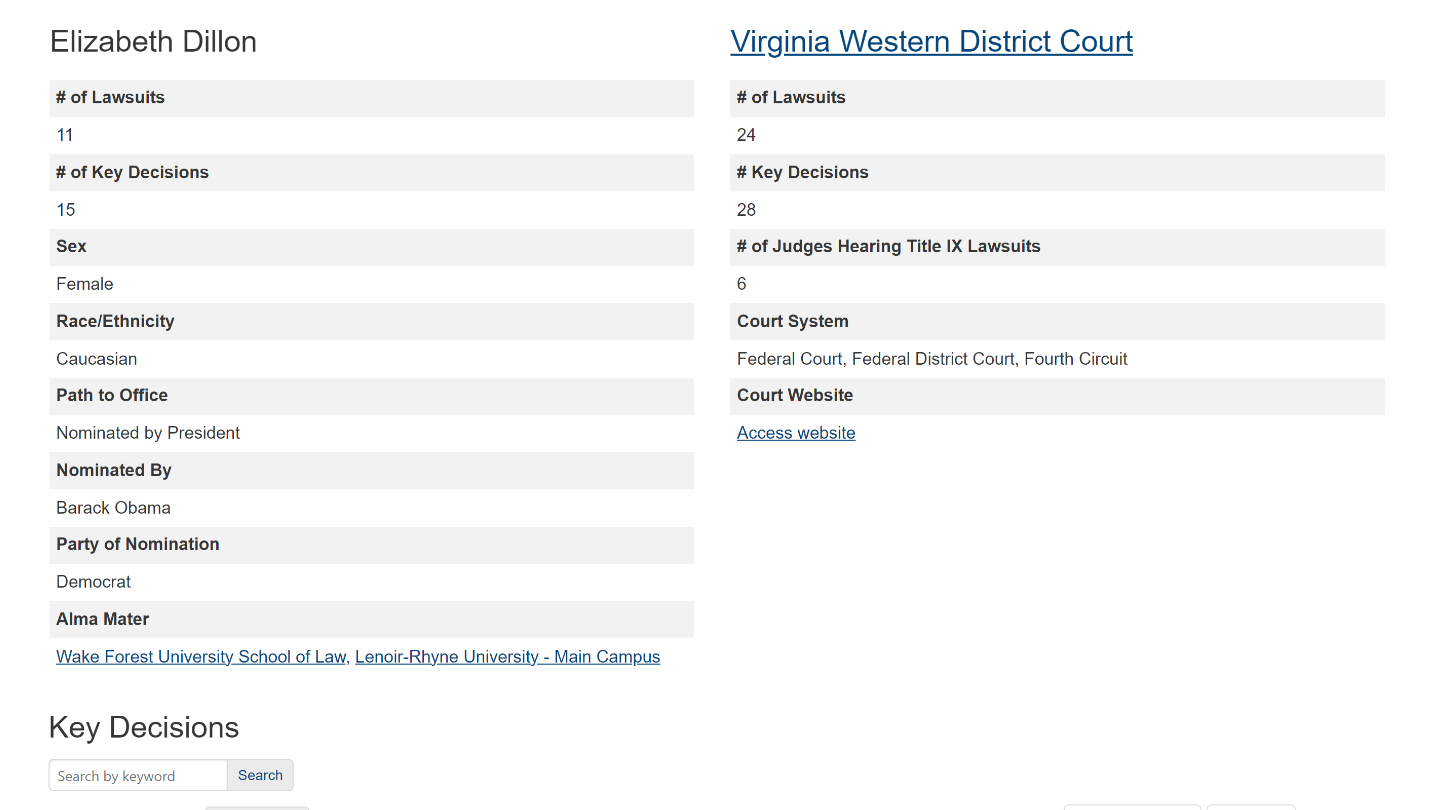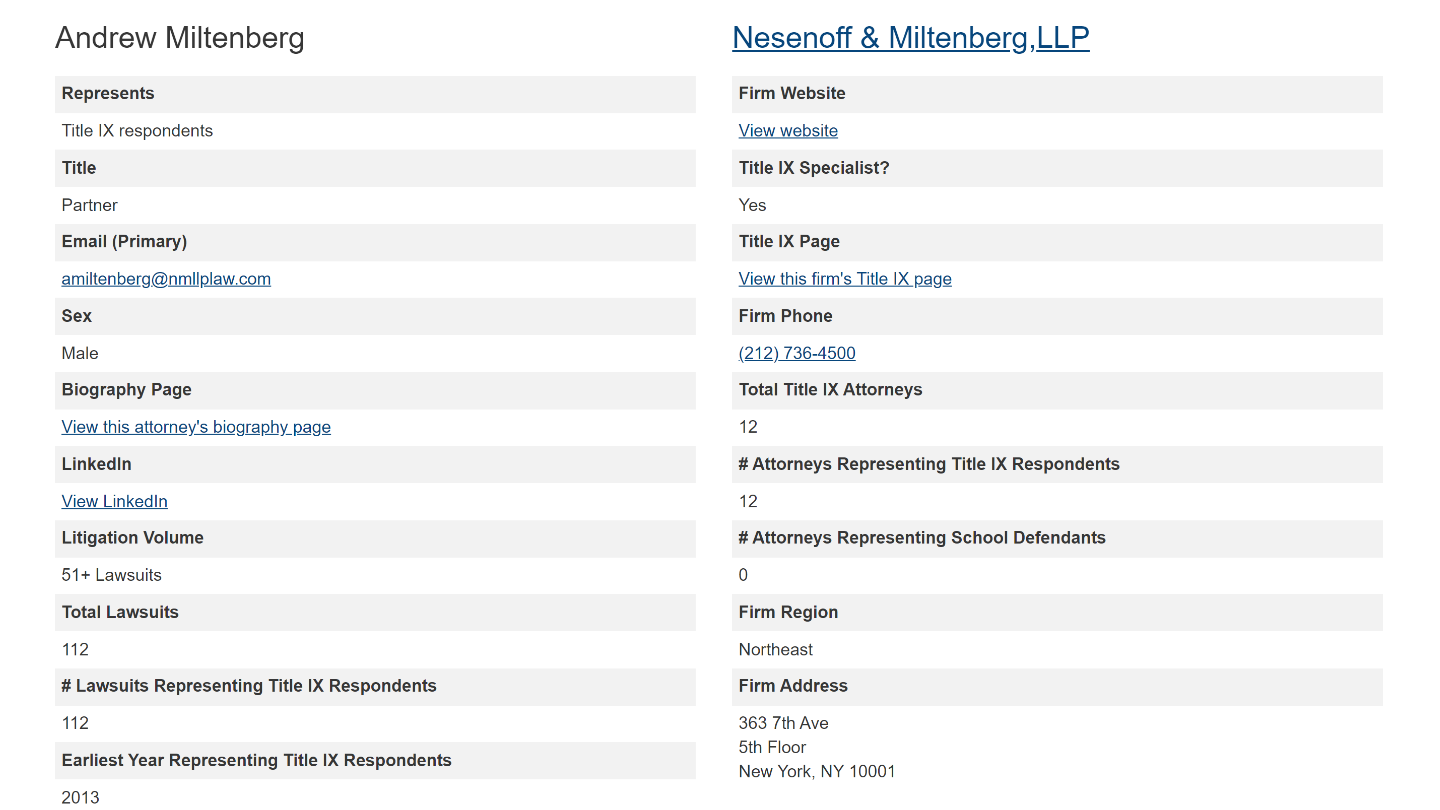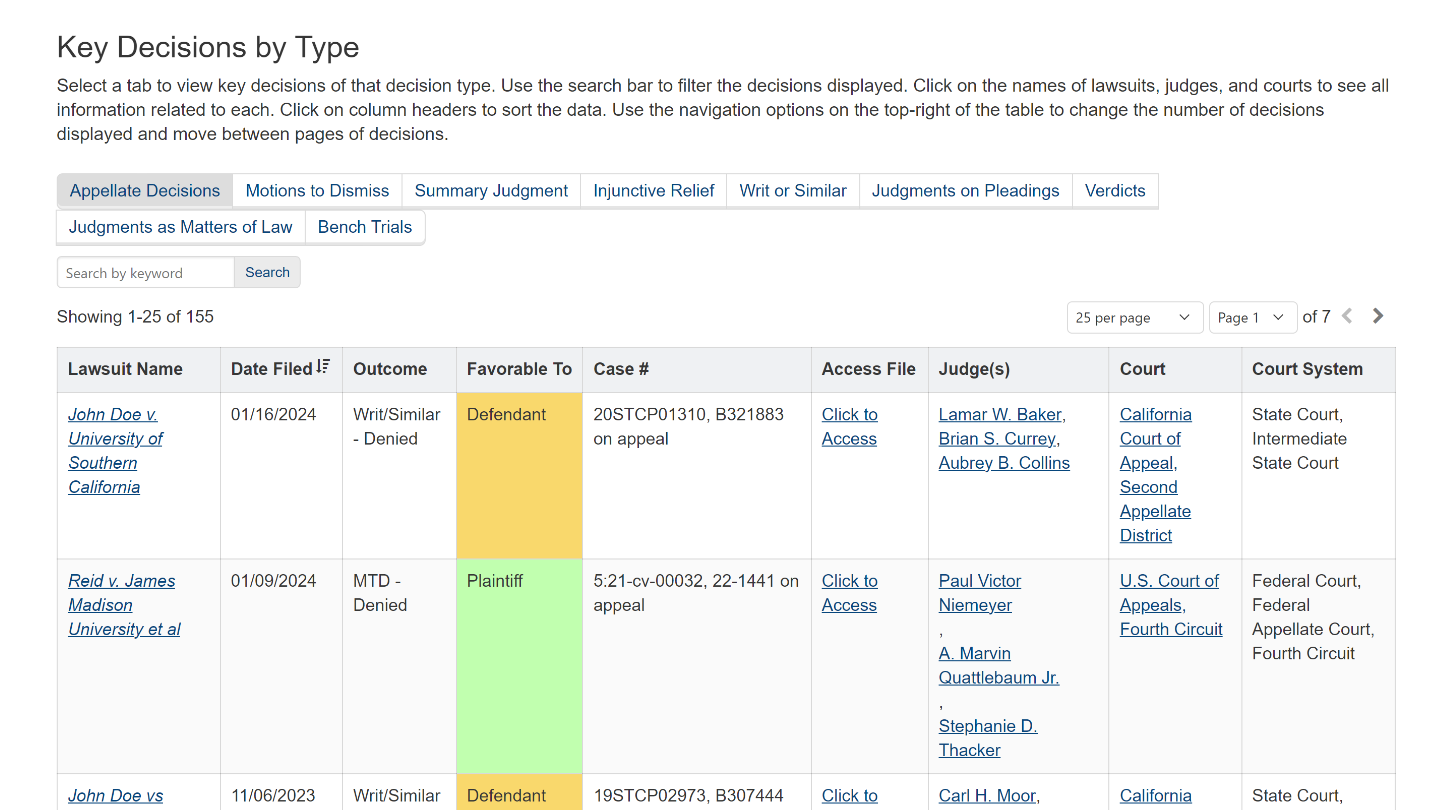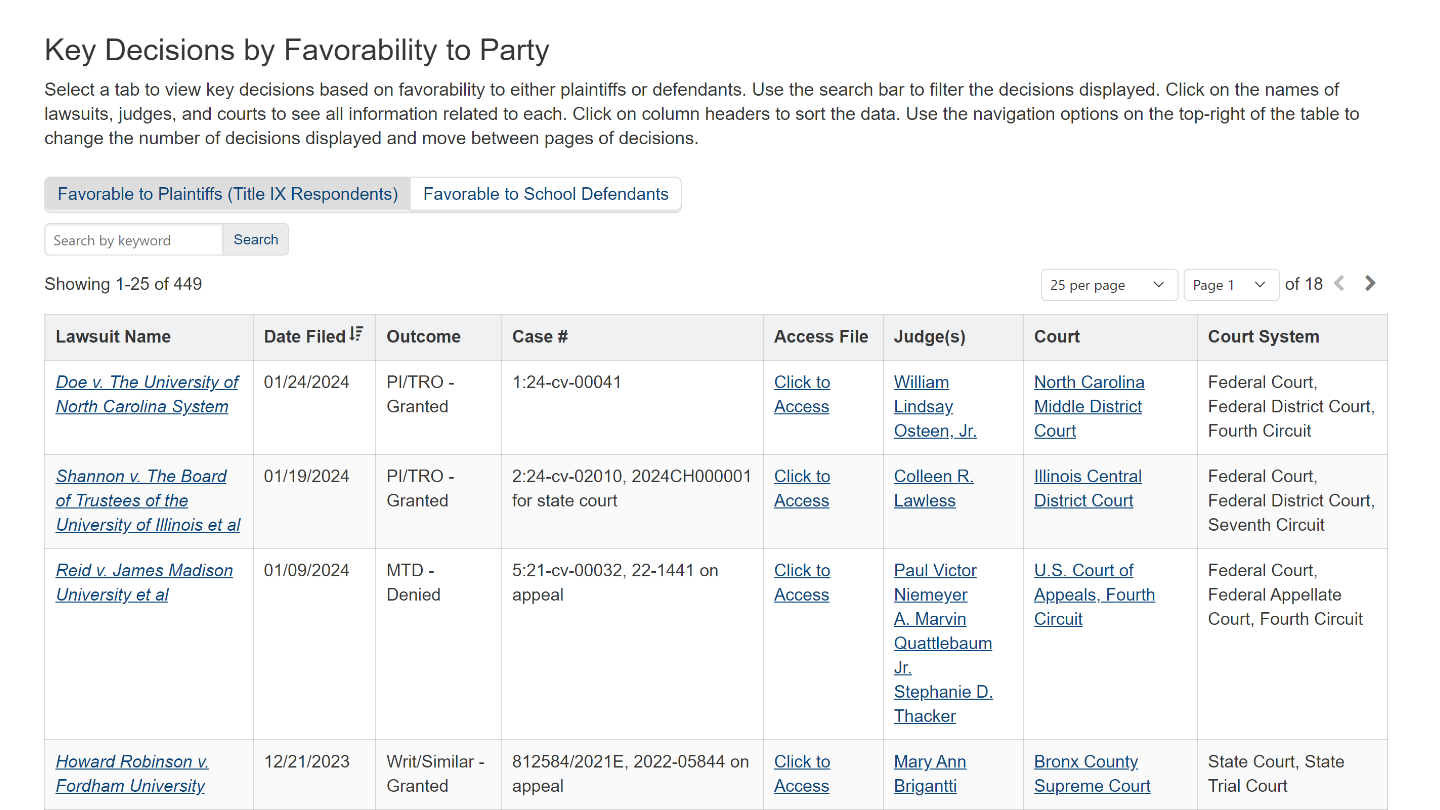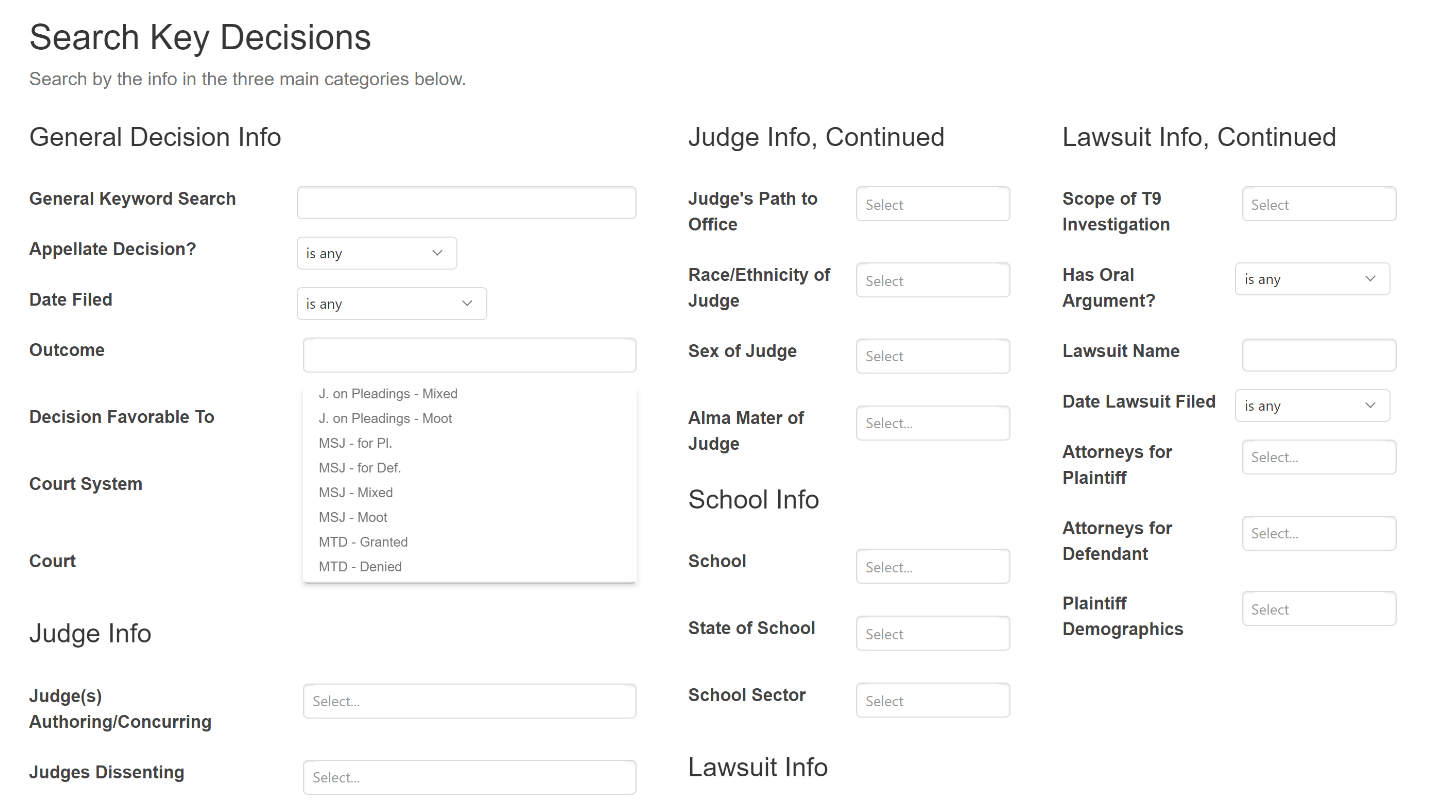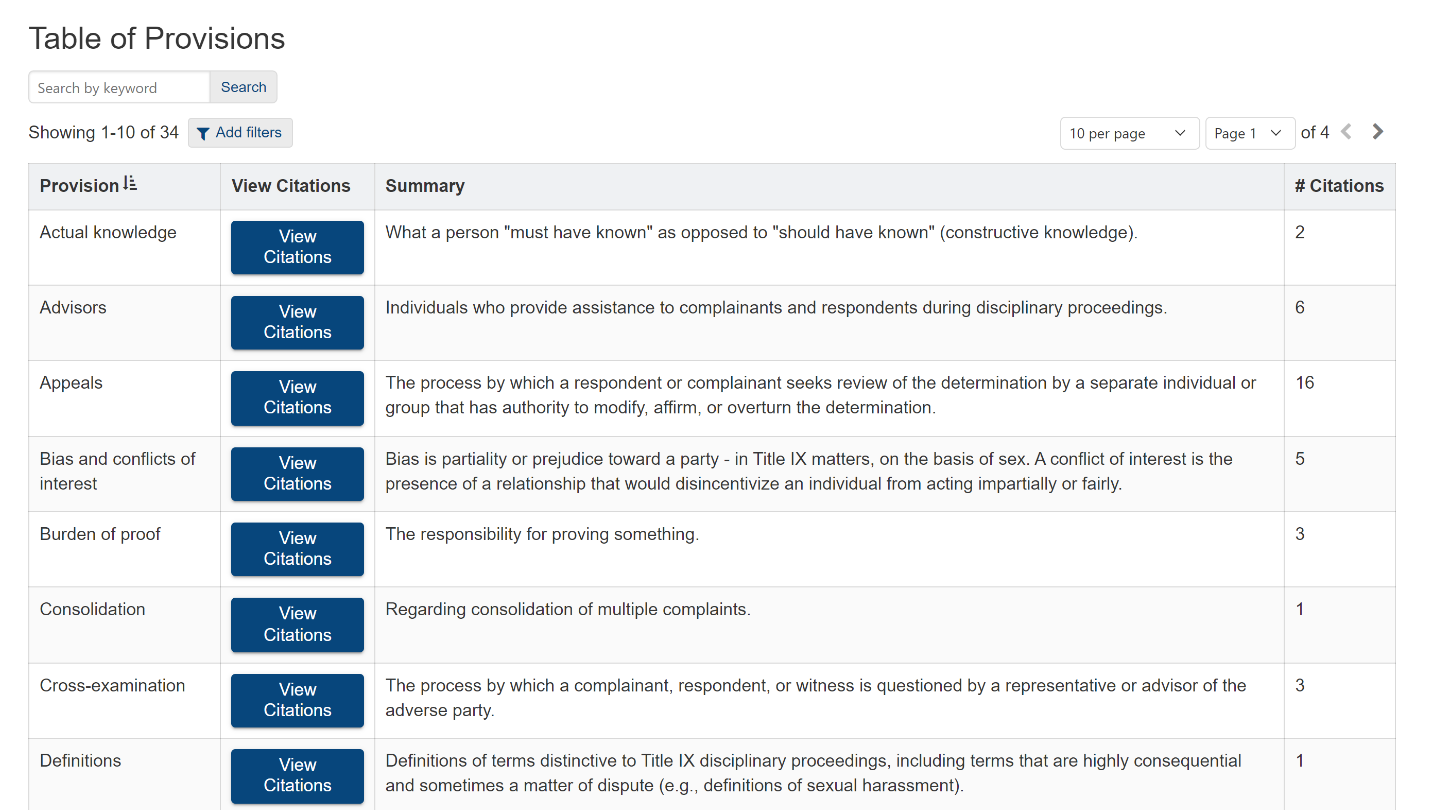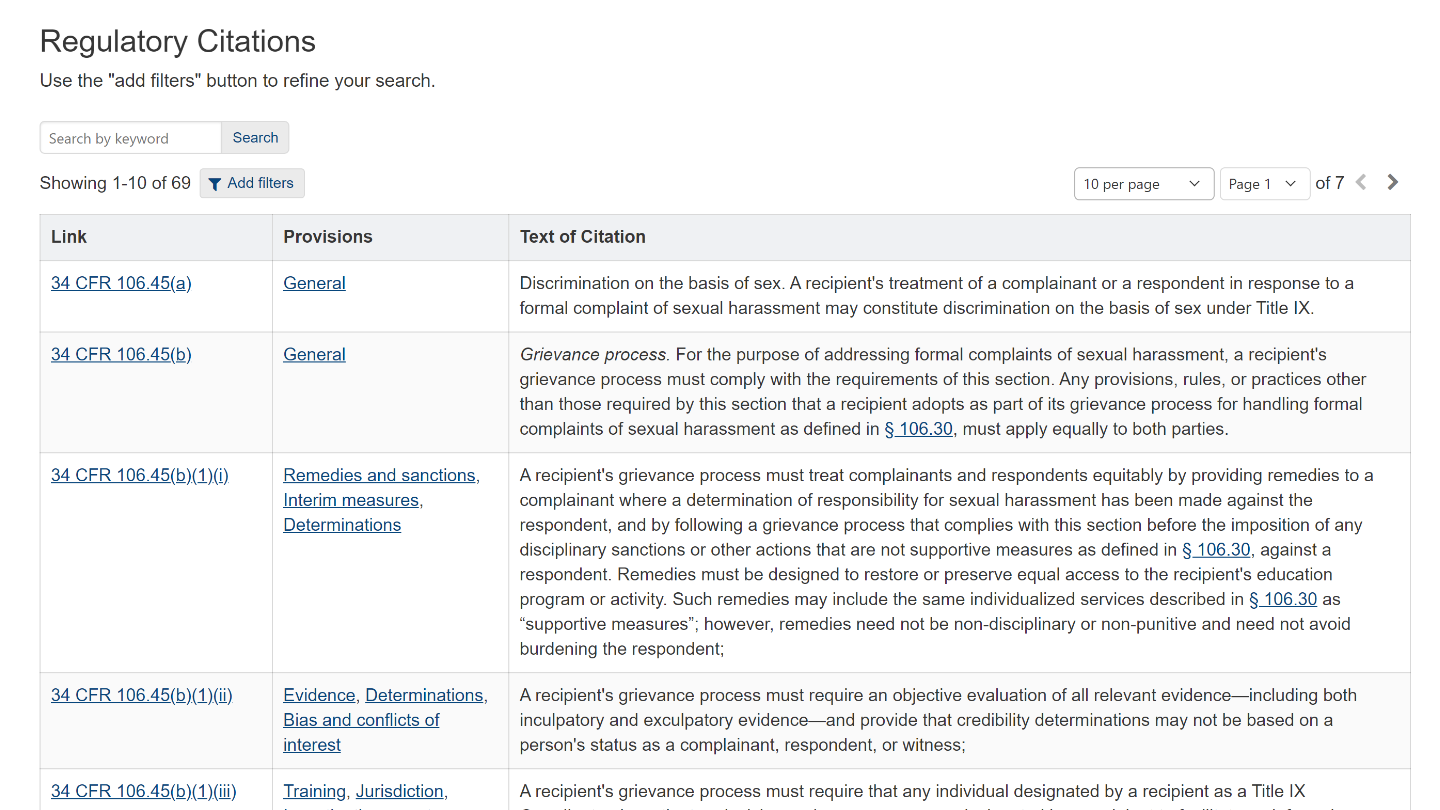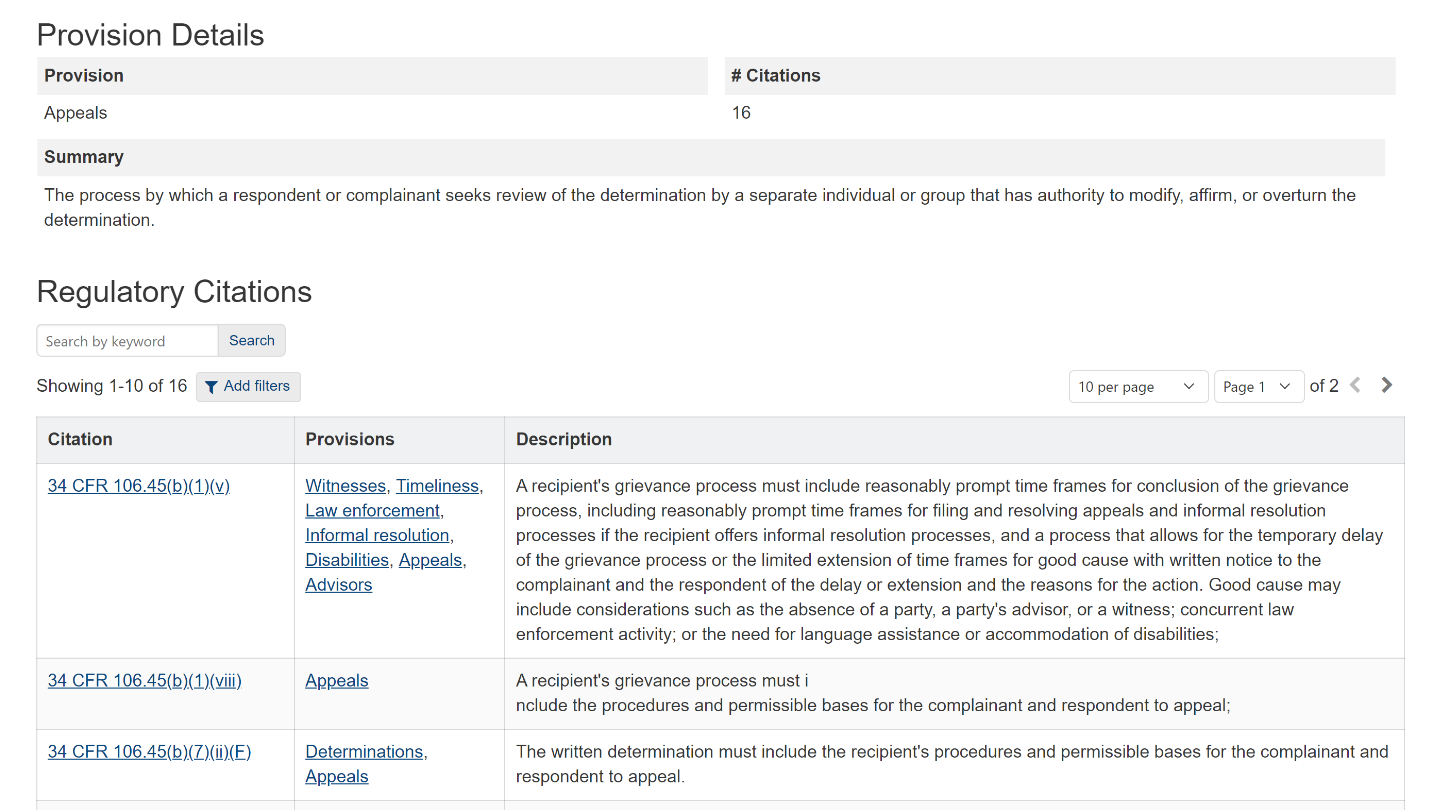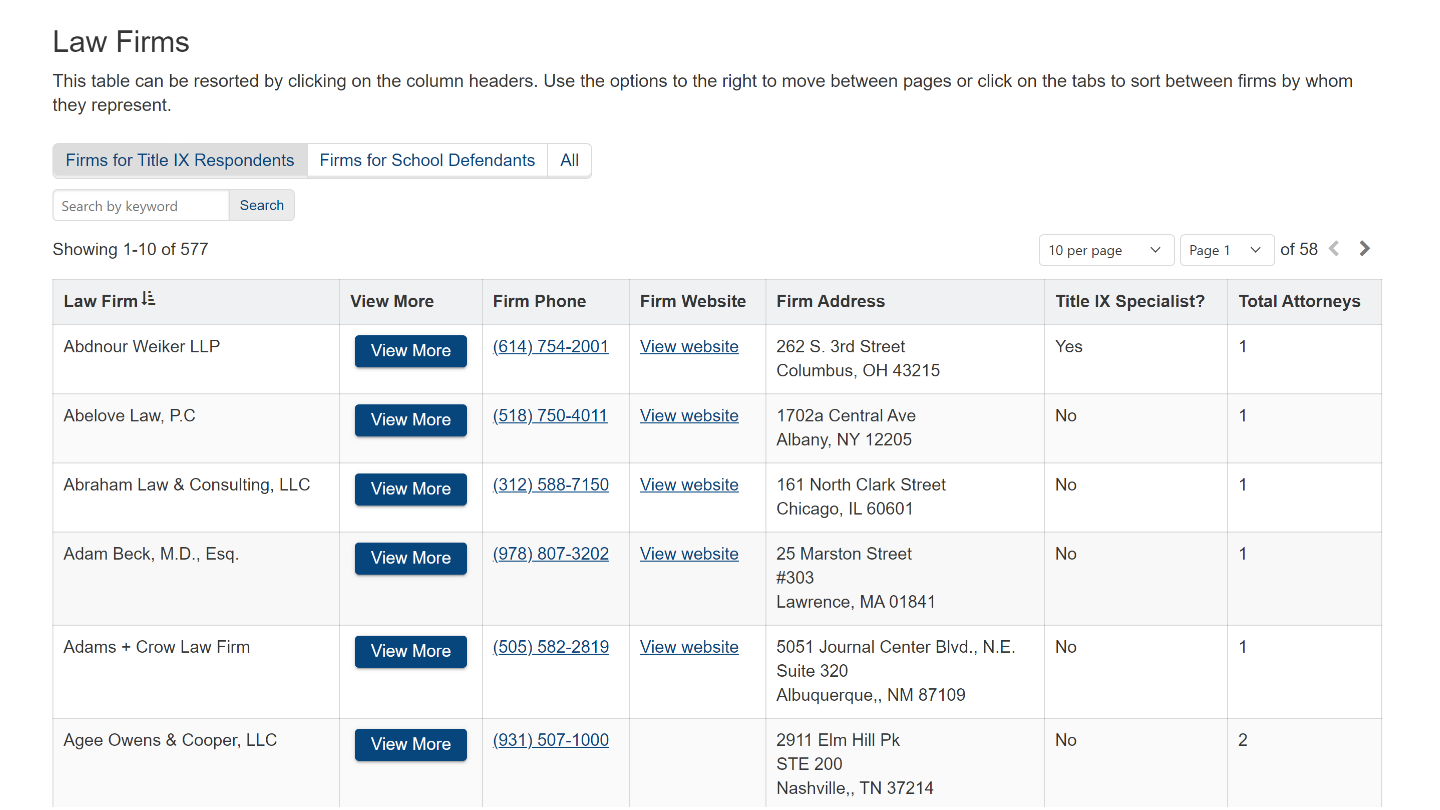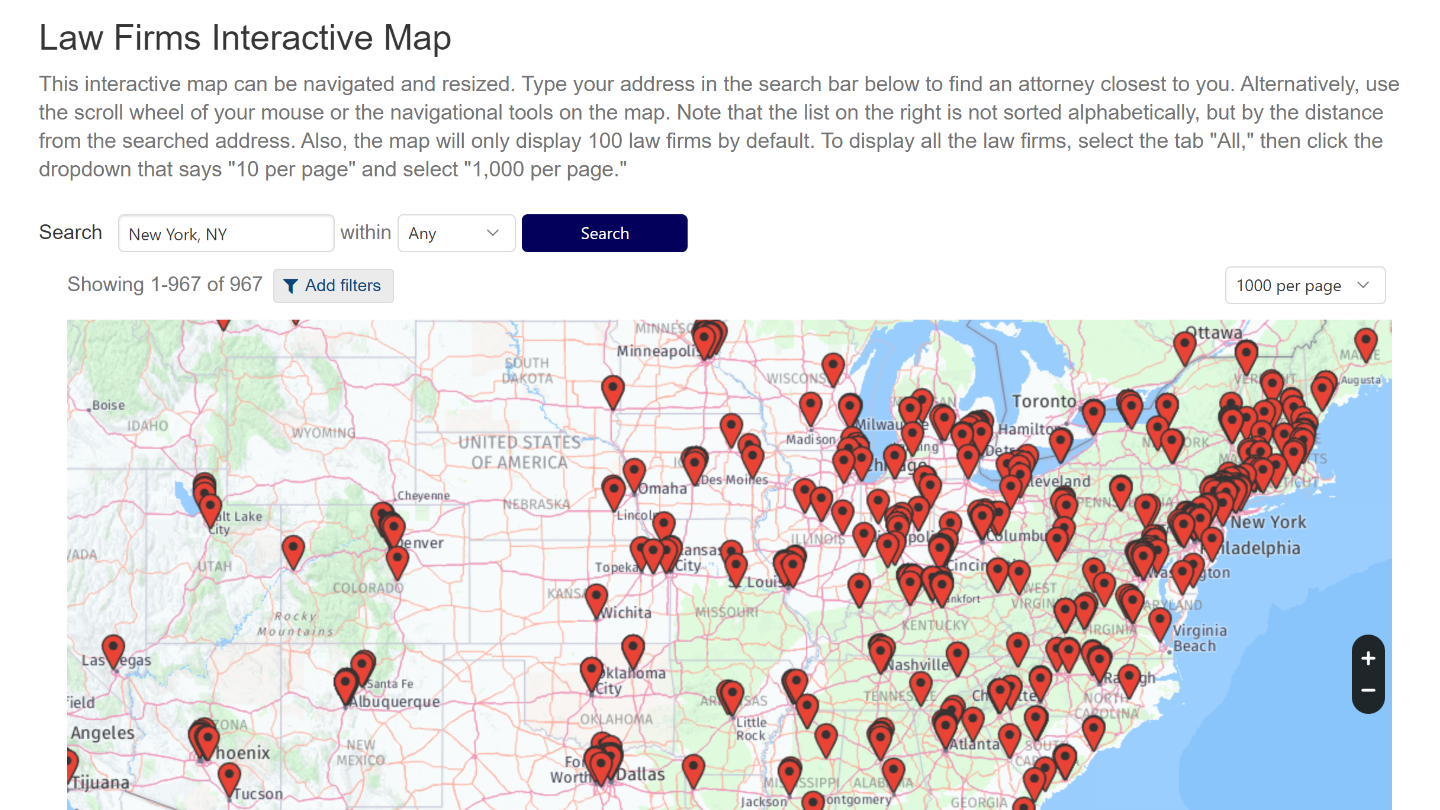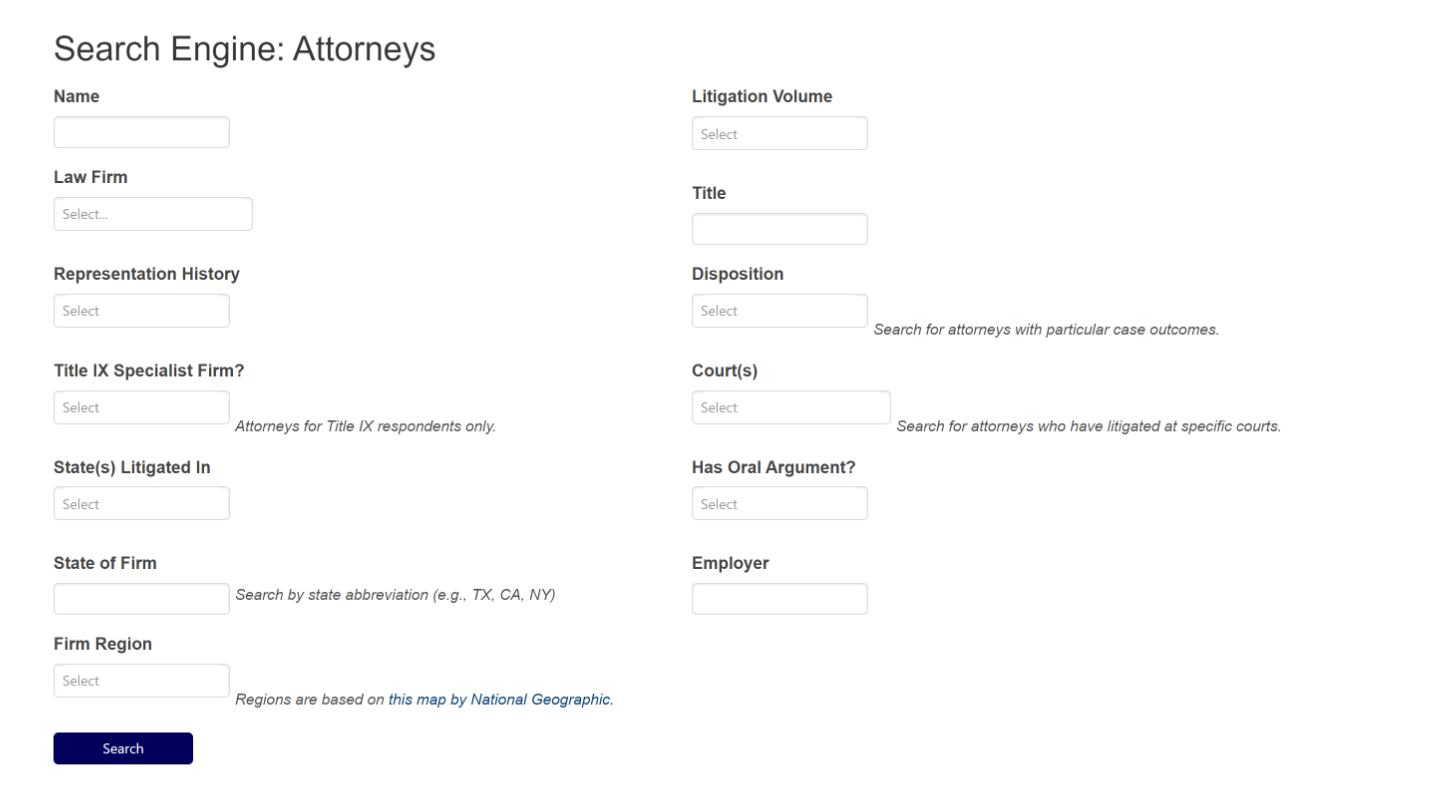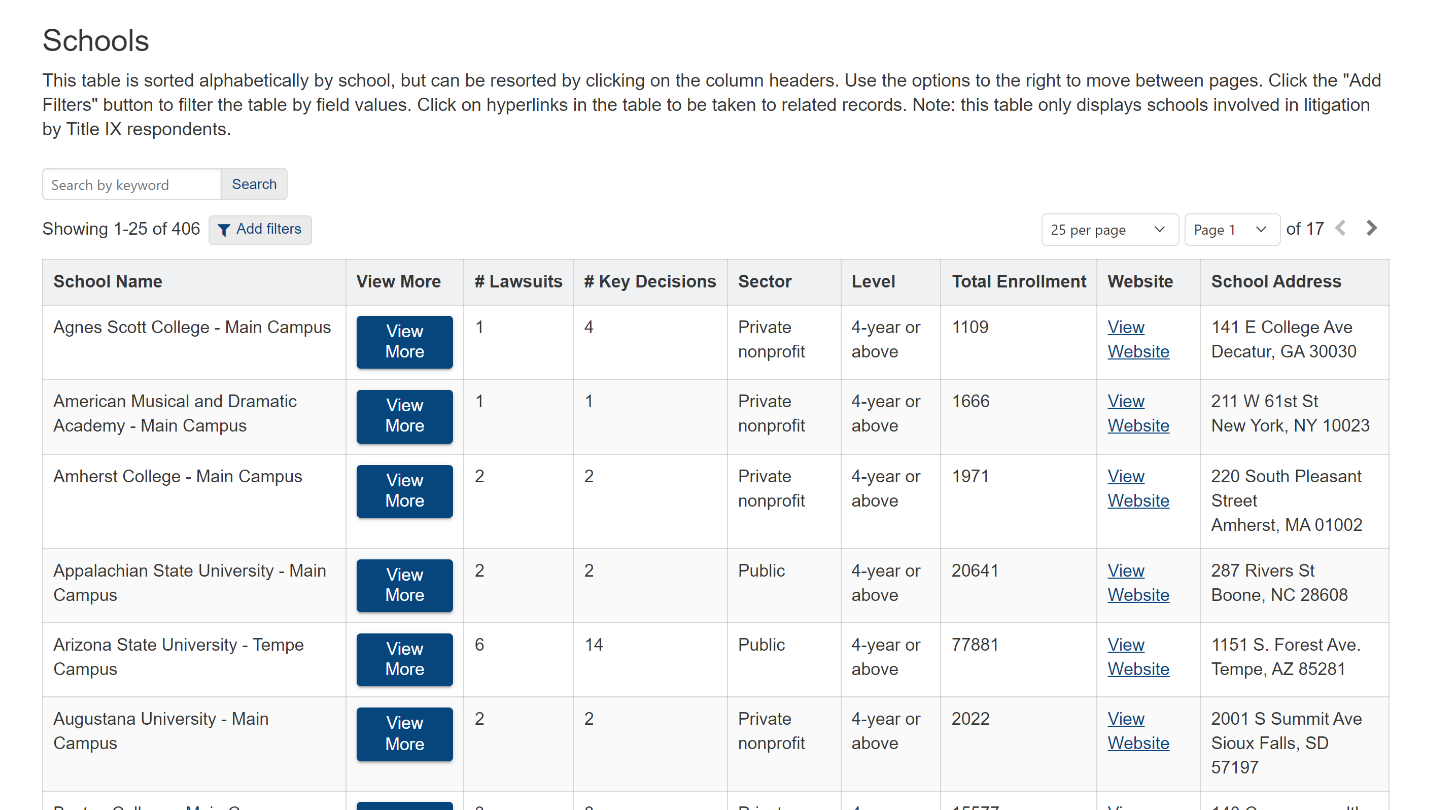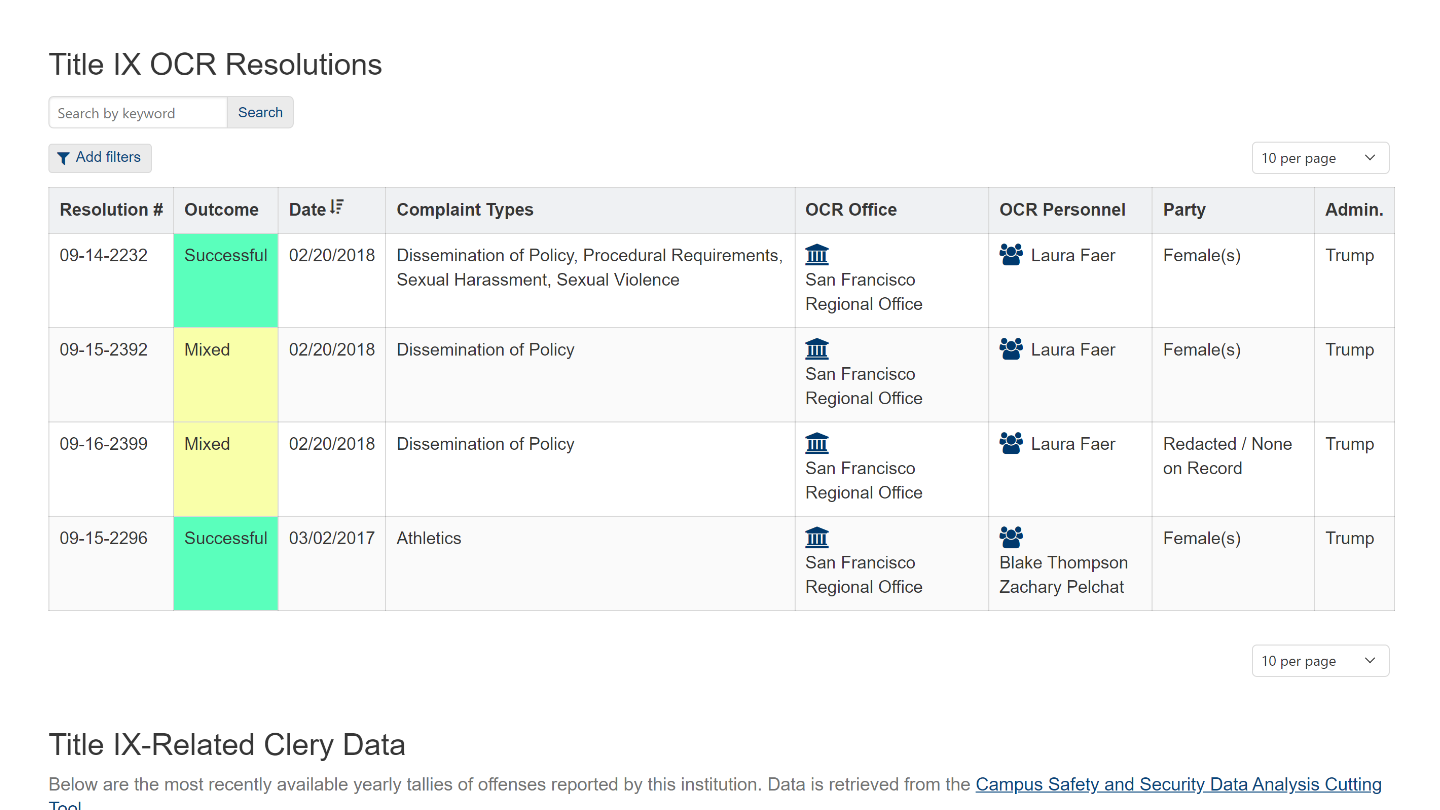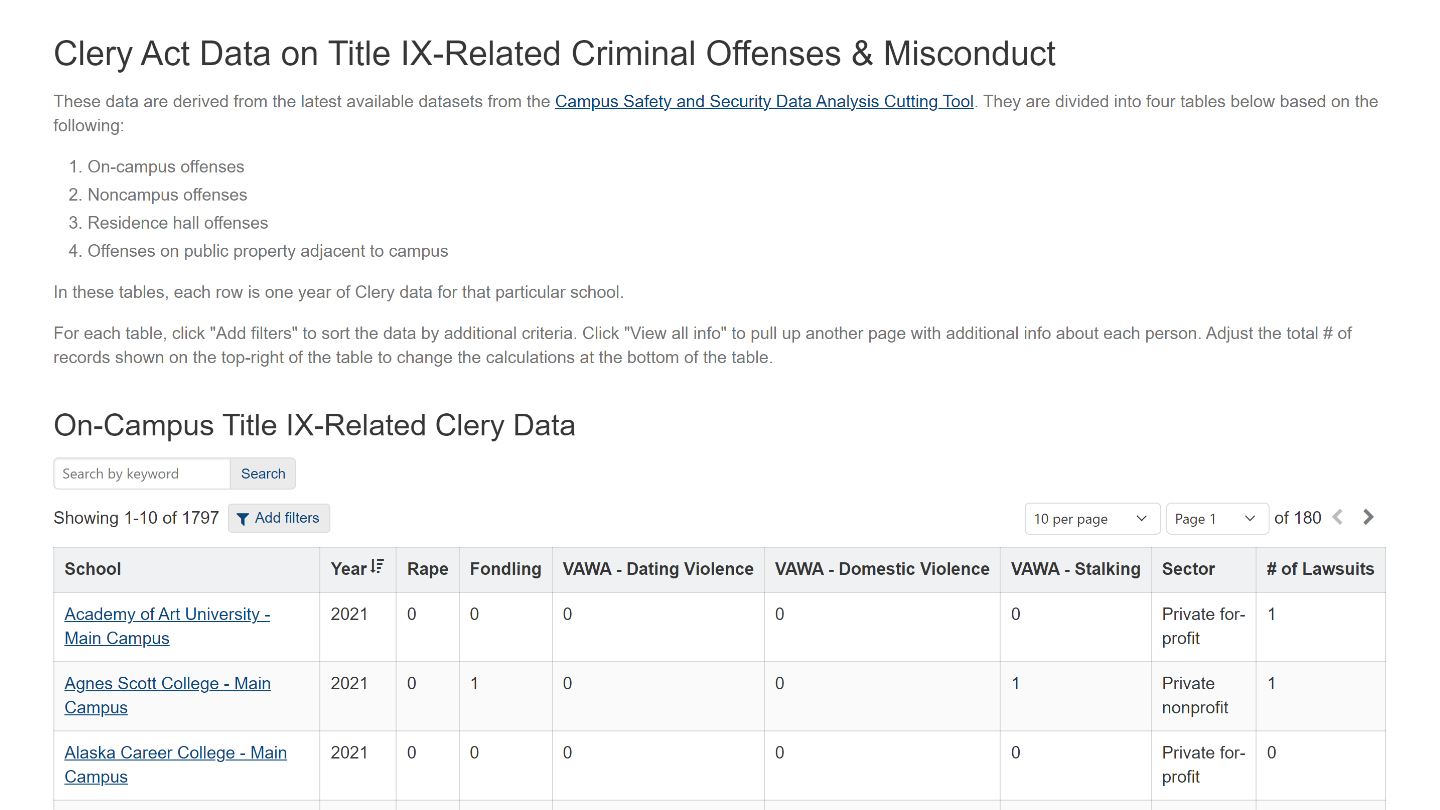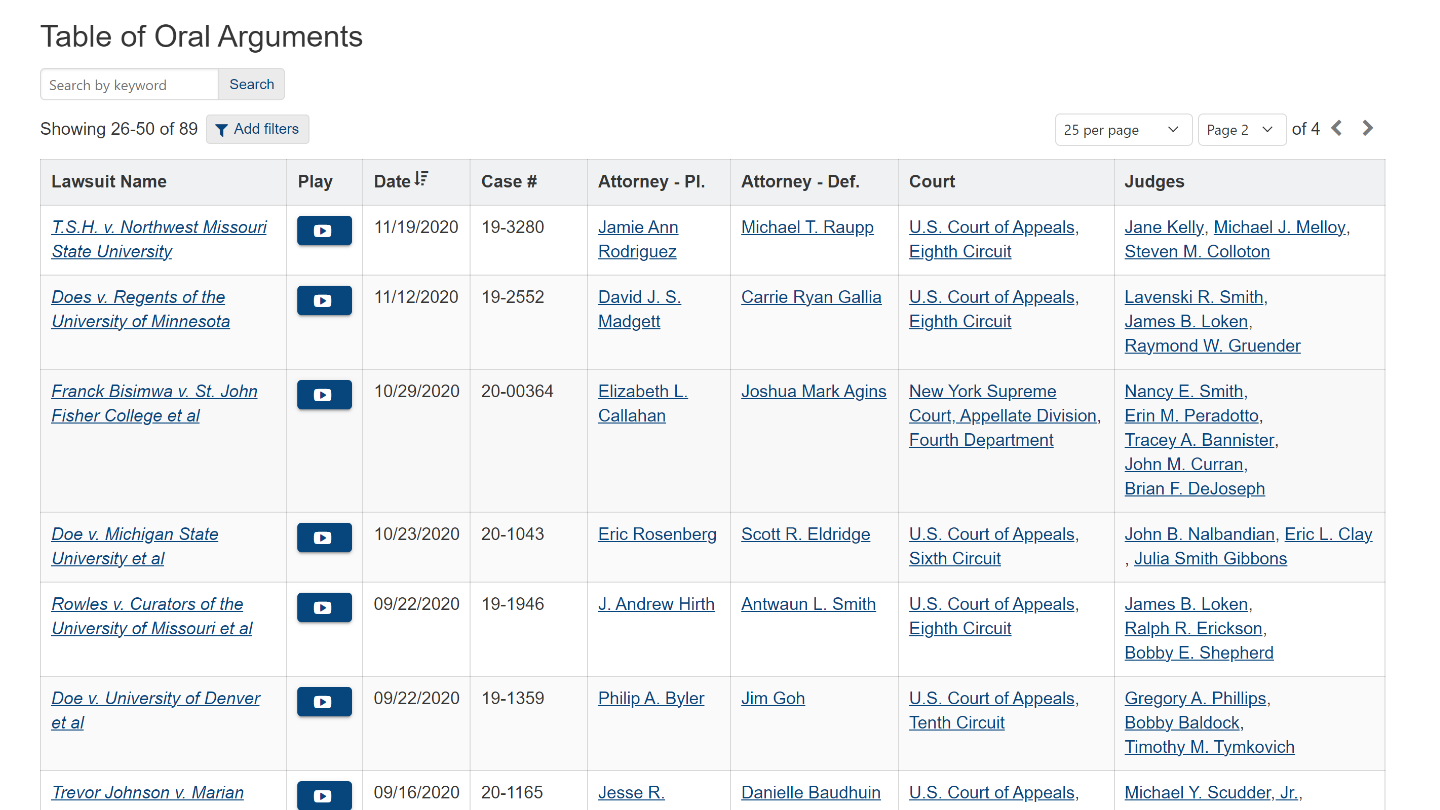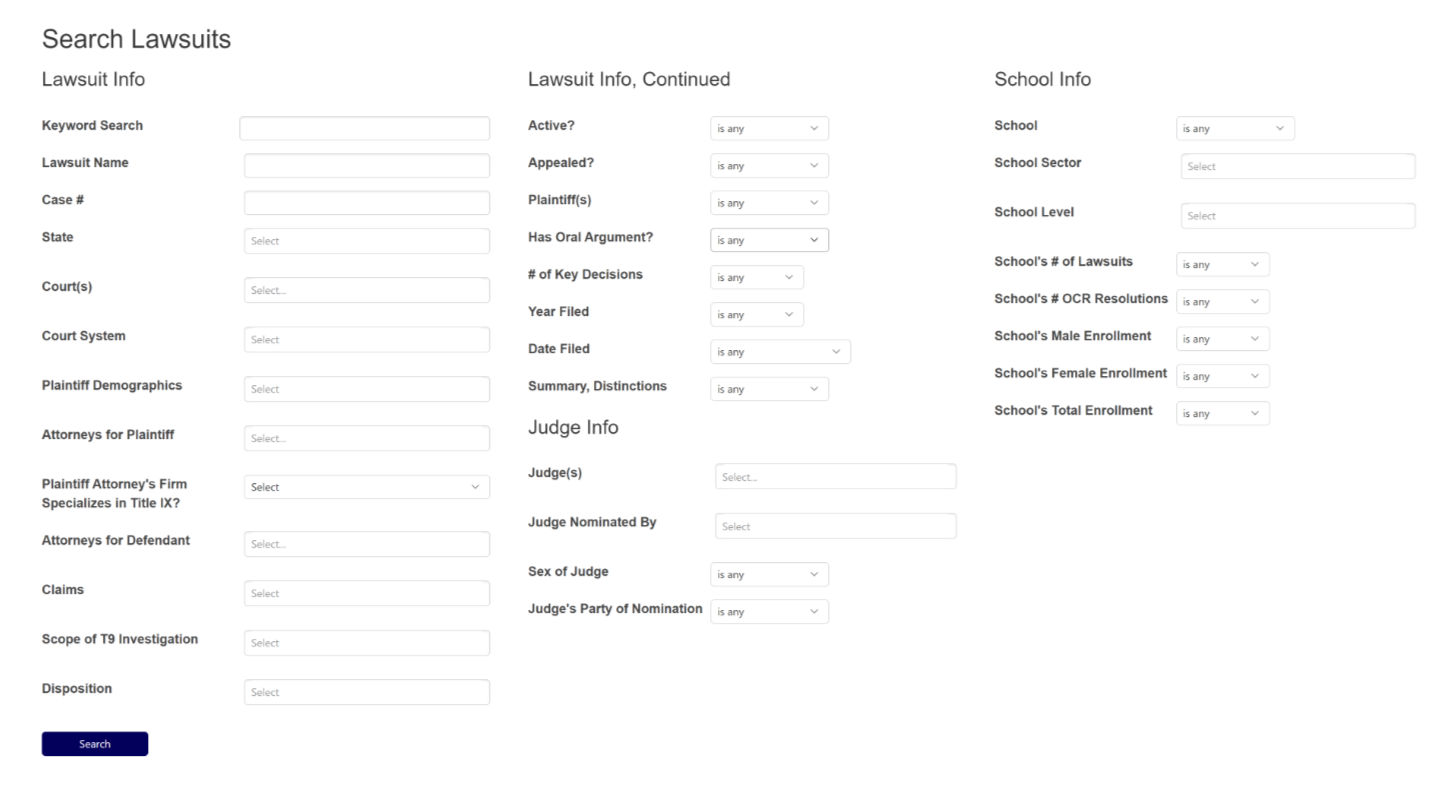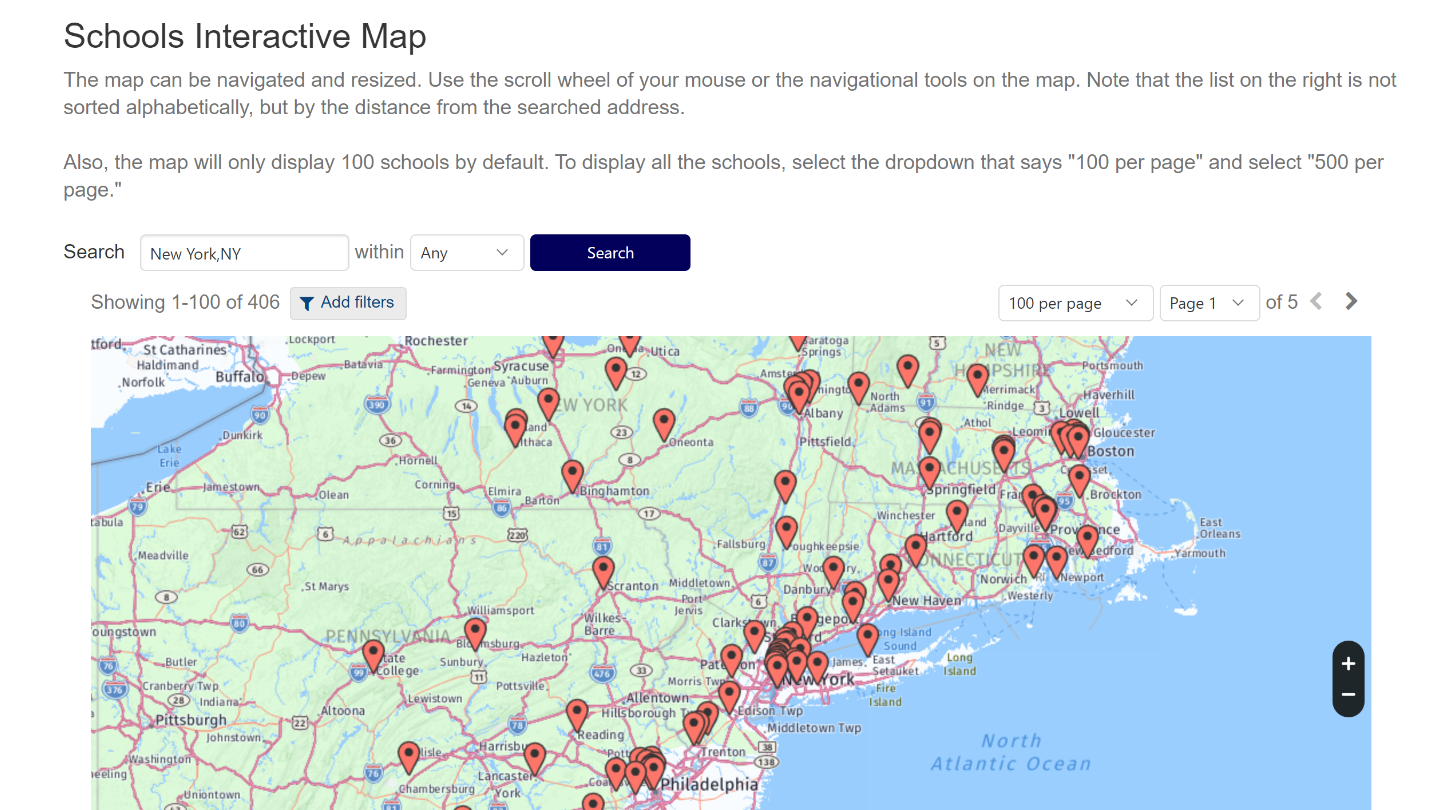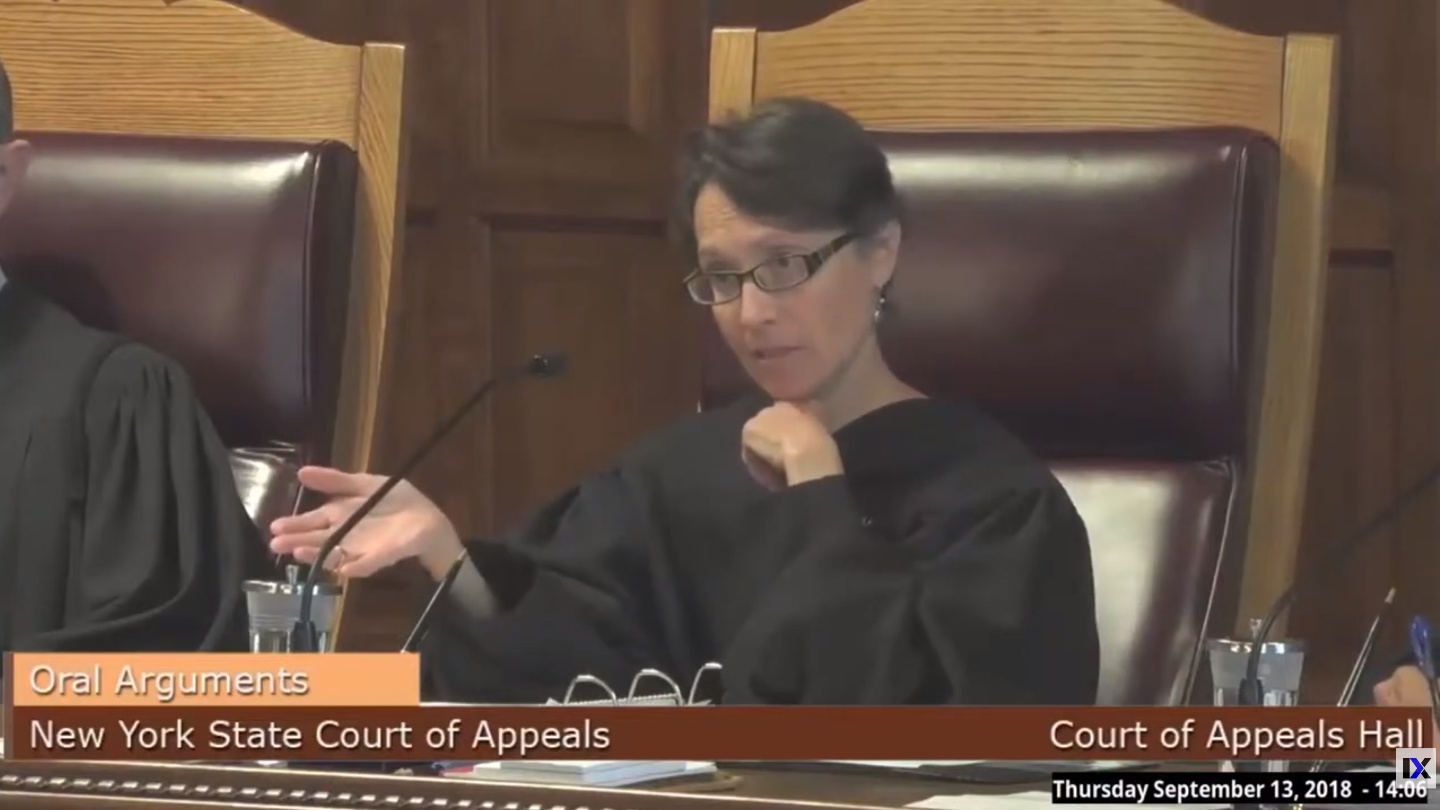Accused Students Database
Formerly the Title IX Lawsuits Database
This is a feature-rich database ideal for those wanting to learn more about the battles of higher ed students accused of Title IX violations, both in school misconduct proceedings and in court. The only database of its kind, it has extensive information on regulations and judicial opinions affecting Title IX grievance procedures. It is also a warehouse of information on hundreds of lawsuits by accused students, their attorneys, schools, school personnel (investigators, hearing officers, etc.), courts, and judges.

Accused Students Database
A feature-rich database ideal for those wanting to learn more about the battles of students accused of Title IX violations, both in school misconduct proceedings and in court. The only database of its kind, it has extensive information on regulations and judicial opinions affecting Title IX grievance procedures. It is also a warehouse of information on hundreds of lawsuits by accused students, their attorneys, schools, school personnel (investigators, hearing officers, etc.), courts, and judges.
Note 6/27/2023: due to system upgrades, current subscribers and users with “saved lawsuit notes” will need to reset their passwords to log in. All other users will need to re-register.
Why a Database?
In 2011, the Department of Education issued guidance for schools to more rigorously investigate Title IX complaints such as sexual assault, dating violence, threats, sexual harassment, stalking, and sexual exploitation. The Department also threatened to revoke funding from schools that failed to comply and initiated highly visible investigations that named and shamed many. Afraid of lawsuits, government investigations, and bad press, schools rushed to comply – and soon overcorrected. In the years that followed, accused students filed a torrent of lawsuits alleging their rights were violated during these proceedings. Judges began to agree.
Since 2011, all three branches of government have continuously debated schools’ obligations and the balance of rights between accusers and the accused. Legal requirements have constantly changed due to new judicial precedents, state laws, and federal regulations. As a result, Title IX misconduct matters have become highly specialized.
In 2015, we established this database to help everyone make sense of it all. The lawsuits included here range from 1977 to the present, with the vast majority of them filed after 2011. While we at Title IX for All have our own stance on the issues, we want this database to be an objective “just the facts” resource that prioritizes accurate data over views or politics.
Why a Database?
In 2011, the Department of Education issued guidance for schools to more rigorously investigate Title IX complaints such as sexual assault, dating violence, threats, sexual harassment, stalking, and sexual exploitation. The Department also threatened to revoke funding from schools that failed to comply and initiated highly visible investigations that named and shamed many. Afraid of lawsuits, government investigations, and bad press, schools rushed to comply – and soon overcorrected. In the years that followed, accused students filed a torrent of lawsuits alleging their rights were violated during these proceedings. Judges began to agree.
Since 2011, all three branches of government have continuously debated schools’ obligations and the balance of rights between accusers and the accused. Legal requirements have constantly changed due to new judicial precedents, state laws, and federal regulations. As a result, Title IX misconduct matters have become highly specialized.
In 2015, we established this database to help everyone make sense of it all. The lawsuits included here range from 1977 to the present, with the vast majority of them filed after 2011. While we at Title IX for All have our own stance on the issues, we want this database to be an objective “just the facts” resource that prioritizes accurate data over views or politics.
Why People Use This Database
Click a tab to learn more.

This database has been used by many accused students and their parents to defend against a Title IX accusation in school proceedings, find a qualified attorney, research Title IX lawsuits, and more. Accused students whose rights were violated in school proceedings but went on to succeed in court have cited it as particularly helpful.
If the investigation is still in its early stages, consider reading our guide on what to do if you have been wrongly accused on our advisory services page.

If you are a newly minted attorney or your practice areas have historically been in non-Title IX matters, this database can help you get up to speed. This database can also be helpful if you are a Title IX attorney whose primary work is serving clients in school proceedings.
A key distinction between this database and other legal databases is that this database is tailored to accused student matters. The user experience, tools, and available data reflect that. You will also find differences in our level of service and easy-to-use account management tools (see the “Service” tab in the Summary of Features section below).

Title IX and student affairs staff are interested in information about lawsuits, regulations, attorneys they may be interacting with, and other schools.
Instructors and professors use it for research for academic writing.
And some accused employees use it to find helpful information they can use for their own cases.
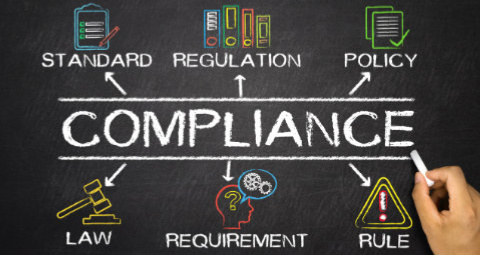
Media professionals who use it for reporting on specific cases and documentaries about trends in how universities handle the issues of misconduct and student discipline,
Advocates who use it for raising awareness of specific issues, compiling reports, and staying on top of trends in litigation and regulation,
State lawmakers and their staff who have used it as a reference and research tool,
Risk management professionals concerned about rising litigation fees, costs, and payouts,
And concerned citizens who wish to be more informed on the issues.
Why People Use This Database
Click a tab to learn more.

This database has been used by many accused students and their parents to defend against a Title IX accusation in school proceedings, find a qualified attorney, research Title IX lawsuits, and more. Accused students whose rights were violated in school proceedings but went on to succeed in court have cited it as particularly helpful.

If you are a newly minted attorney or your practice areas have historically been in non-Title IX matters, this database can help you get up to speed. This database can also be helpful if you are a Title IX attorney whose primary work is serving clients in school proceedings.
A key distinction between this database and other legal databases is that this database is tailored to accused student matters. The user experience, tools, and available data reflect that. You will also find differences in our level of service and easy-to-use account management tools (see the “Service” tab in the Summary of Features section below).

Title IX and student affairs staff are interested in information about lawsuits, regulations, attorneys they may be interacting with, and other schools.
Instructors and professors use it for research for academic writing.
And some accused employees use it to find helpful information they can use for their own cases.

Media professionals who use it for reporting on specific cases and documentaries about trends in how universities handle the issues of misconduct and student discipline,
Advocates who use it for raising awareness of specific issues, compiling reports, and staying on top of trends in litigation and regulation,
State lawmakers and their staff who have used it as a reference and research tool,
Risk management professionals concerned about rising litigation fees, costs, and payouts,
And concerned citizens who wish to be more informed on the issues.
Summary of Features
Click one of the toggles below to learn more about each feature.
What People Say About our Work
Hover the mouse pointer over an image and then click on the arrows (or swipe if on mobile/tablet) to see more.
Ready to Sign Up? Select a Plan Below
To access the database you must subscribe to it. Select the plan of your choice below. Our model offers deeper discounts for longer subscriptions as well as affordable short-term options.
*Special introductory pricing for first-time subscribers. Subscriptions renew at full price. Cancel anytime.


